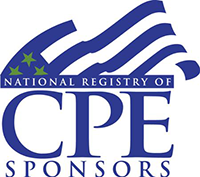The Houston ACFE is happy to partner with Audimation Services to provide a 'hands on' learning opportunity for Fraud Data Analysis with instructor Scott Langlinais, CPA. Scott has over 20 years of experience in fraud detection and investigation. He has planned and conducted examinations related to executive corruption, bribes, kickbacks, vendor over billing and under-performance, and employee theft. Scott regularly reports his findings to Boards of Directors, has testified in court on fraud matters, and has submitted his findings to federal law enforcement.
During this two-day hands-on VIRTUAL seminar, attendees will apply data analysis techniques to real-life fraud scenarios using data files and case studies to identify and solve problems. Our goal is to teach audit and accounting professionals to detect fraud, waste and abuse early and address them professionally.
Whether you are a seasoned investigator or someone seeking a better understanding of what can go wrong in your organization, you will benefit from this program. Novice auditors or those new to data analysis will learn and employ fundamental detection techniques to real cases, while advanced users and investigators will apply their knowledge in new and challenging ways to detect buried symptoms within complex schemes.
NOTE: Attendees will be provided access to a virtual desktop. You will only need a computer with quality internet access.
Don't use IDEA? A free demo version of IDEA software will be provided to you. IDEA runs in Windows and is not compatible with the Mac operating system.
From the opening exercise, we will employ a team approach to solving cases, as in the field. Within IDEA, you will apply to actual case data: Creative Extractions; Statistical Analyses; Join-matches & mismatches; Trend Analysis; Pivot Tables; Embedded Functions; Field Manipulation; Numeric & Date Stratification; Benford's Law; Data Duplications & Exclusions; and more!
Who should attend: Auditors, Investigators, Accounting Professionals.
Location: Virtual Course using Remote Desktop Learning Service and GoTo Webinar NOTE - Due to the Covid-19 precautions this course is being delivered remotely.
Learning Objectives:
Preparing to Detect Fraud
- Factors that discourage us from detecting fraud.
- Building discipline to handle wrongdoing and avoid the dangers of mishandling cases.
- Applying a five-step approach to fraud detection.
- Understanding what can go wrong and recognizing symptoms of wrongdoing.
- Correcting problems with the data import, identifying missing and hidden data.
- Keeping your data organized.
Detecting Fraud with IDEA
- Identifying patterns through statistical review, data sorting, and field summarizations.
- Effective and creative extractions for disbursements, employee reimbursements, liquid assets,
revenues, and general ledger transactions.
- Employing editable fields to flag anomalies.
- Applying duplicate key detection/exclusion, and combining with field manipulation to detect
circumvention of system controls.
- Avoiding six common errors in data analysis.
- Stratifying data to detect approval circumvention, earnings management, and money laundering.
- Using special functions to carve out symptoms embedded within blocks of data.
- Employing join-matches and mismatches to detect fictitious vendors, revenue leaks, and false shipments.
- Extracting key-word symptoms of corruption and fraudulent financial reporting.
- Application of pivot tables, Benford's law, and trend analysis.
Putting It All Together
- Developing programs to detect theft and fraudulent reporting.
- Applying techniques to solve cases from allegation to presentation of evidence.
- Weaving techniques into a continuous monitoring program.
- Using principles of effective thinking and presentation to compile effective evidence.
CPE Credits: up to 16 CPE Credit
THIS IS A VIRTUAL MEETING, NOT AN IN PERSON MEETING
LUNCH BREAK IS A TIME FOR PARTICIPANTS TO TAKE A BREAK. RESUMES ONE HOUR LATER
Agenda (Both Days):
7:30 AM
|
Virtual Meeting Opens |
8:30 AM
|
Course Begins
|
12:00 PM
|
Time off for Lunch, resume at 1:00 pm |
4:30 PM
|
Course Ends
|
Event Policies:
If you have registered and/or paid for an event and you need to cancel, you MUST email events@houstonacfe.org no later than 5 days prior to the event to request a refund and/or cancel your registration.
For more information regarding refund, complaint and/or program cancellation policies, please visit the Terms & Conditions section of the website, or email us at events@houstonacfe.org.
Additional Information:
Delivery Method: Group Live
Prerequisites: Not Applicable
Field of Study: Specialized Knowledge and Applications [Fraud]
Who Should Attend: Anti-fraud professionals, Auditors, Accountants, Attorneys, Investigators, Law Enforcement, Educators, Students
Advanced Preparation: None
Program Level: Basic
NASBA Sponsor No. 125230
 The Houston Area Chapter of the Association of Certified Fraud Examiners is registered with the National Association of State Boards of Accountancy (NASBA) as a sponsor of continuing professional education on the National Registry of CPE Sponsors. State boards of accountancy have the final authority on the acceptance of individual courses for CPE credit. Complaints regarding registered sponsors may be submitted to the National Registry of CPE Sponsors through its website: www.learningmarket.org.
The Houston Area Chapter of the Association of Certified Fraud Examiners is registered with the National Association of State Boards of Accountancy (NASBA) as a sponsor of continuing professional education on the National Registry of CPE Sponsors. State boards of accountancy have the final authority on the acceptance of individual courses for CPE credit. Complaints regarding registered sponsors may be submitted to the National Registry of CPE Sponsors through its website: www.learningmarket.org.